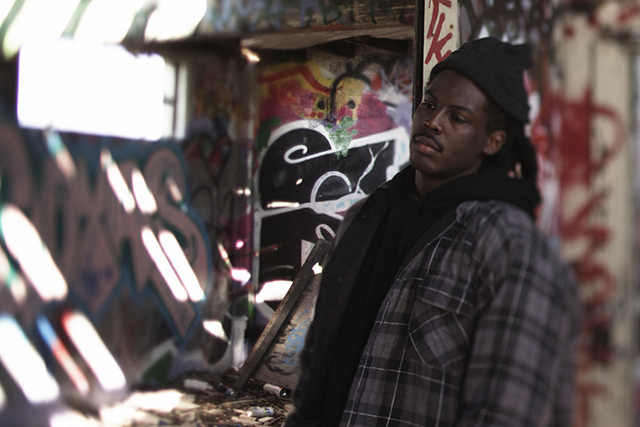Black entertainers in this country shoulder a burden that we don’t often consider – that of representation. Even now in the 21st century, the Black artist must carry the entire race with them as they navigate career, politics and the complexities of their personal lives. Watching from the sidelines, we expect –perhaps unconsciously, for these larger than life figures to make choices that are conscious of their Blackness. We are desperate for them to recognize that their visibility affects the community as a whole. In the 20th century, at a time when Black visibility in the entertainment space was nearly scarce-- consummate entertainer Sammy Davis, Jr. an enigmatic and unparalleled talent was often labeled an Uncle Tom and sell-out. He was seen as out of touch with the realities of everyday Black people because of the company that he kept publically. In his well-honed and rapidly paced documentary Sammy Davis, Jr.: I've Gotta Be Me, filmmaker Sam Pollard dives deep into the six-decade long career of Davis -- one that began on the streets of Harlem and ended just before his death in 1990, with a television tribute starring everyone from Michael Jackson to Gregory Hines.
A man with no formal education whatsoever, Davis had traveled across the country ten times by the time he was 10-years old. Born into a family of entertainers, Davis won his first amateur performance at three years old, and he would continue to defy expectations and shatter glass ceilings throughout his career. Using Davis' own words with old archival footage of interviews and his performances, with input from historians and his friends, lover, and admirers, including, Billy Crystal, Whoopi Goldberg, Norman Lear, Jerry Lewis and Kim Novak, Pollard's film is electric.
Despite his magnetic career, Davis’ desperate desire to be seen as merely an entertainer and not necessarily a Black entertainer put him at odds with the community. It was something that deeply pained him, especially since he was a patriot, avid member of the Civil Rights Movement and a dear friend to Martin Luther King, Jr. Though they are often overlooked when his career is considered as a whole, Pollard is careful to highlight Davis' philanthropic and civil contributions. Dear friends with Sidney Poitier, Ossie Davis and Harry Belafonte, Davis raised over $5 million for the Civil Rights Movement during Freedom Summer. He was awarded the NAACP Spingarn Medal, and he was present at both Selma and the March on Washington.
Continue reading at Shadow and Act.



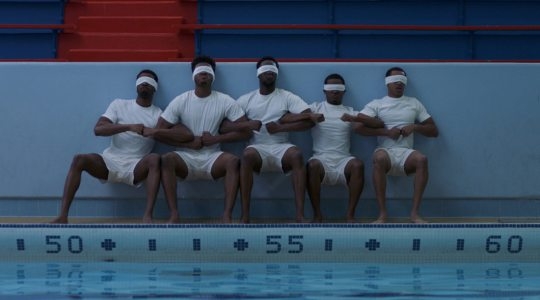 If you exist outside of the Greek world, and certainly if you attended a predominantly white university as a student of color, Greek life swirls around you.
If you exist outside of the Greek world, and certainly if you attended a predominantly white university as a student of color, Greek life swirls around you.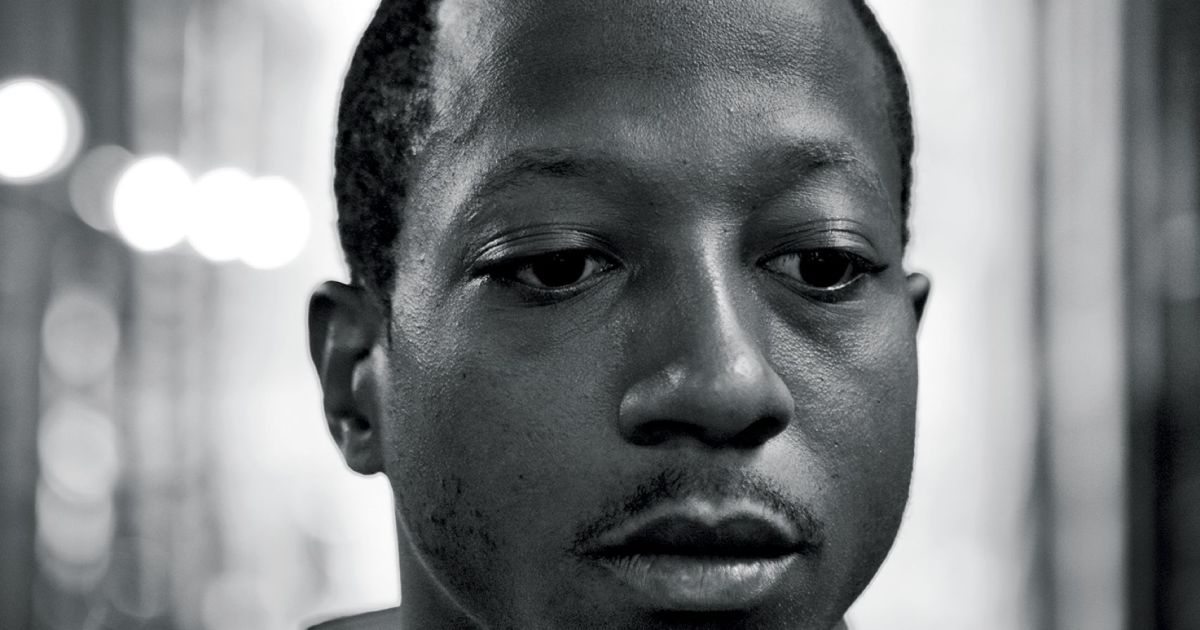 The justice system is failing us right now, and it has been for years. If we look at the world around us, the man who walks the halls of the White House and the policies that are reigning down on the citizens and residents of this country, it’s clear that laws are being made to keep us shackled and immobile for generations and centuries to come. We are all being crippled whether literally or morally. However, no group of people has been more devastated, cast aside and broken by the system than impoverished people of color. In her astounding Netflix documentary,
The justice system is failing us right now, and it has been for years. If we look at the world around us, the man who walks the halls of the White House and the policies that are reigning down on the citizens and residents of this country, it’s clear that laws are being made to keep us shackled and immobile for generations and centuries to come. We are all being crippled whether literally or morally. However, no group of people has been more devastated, cast aside and broken by the system than impoverished people of color. In her astounding Netflix documentary, 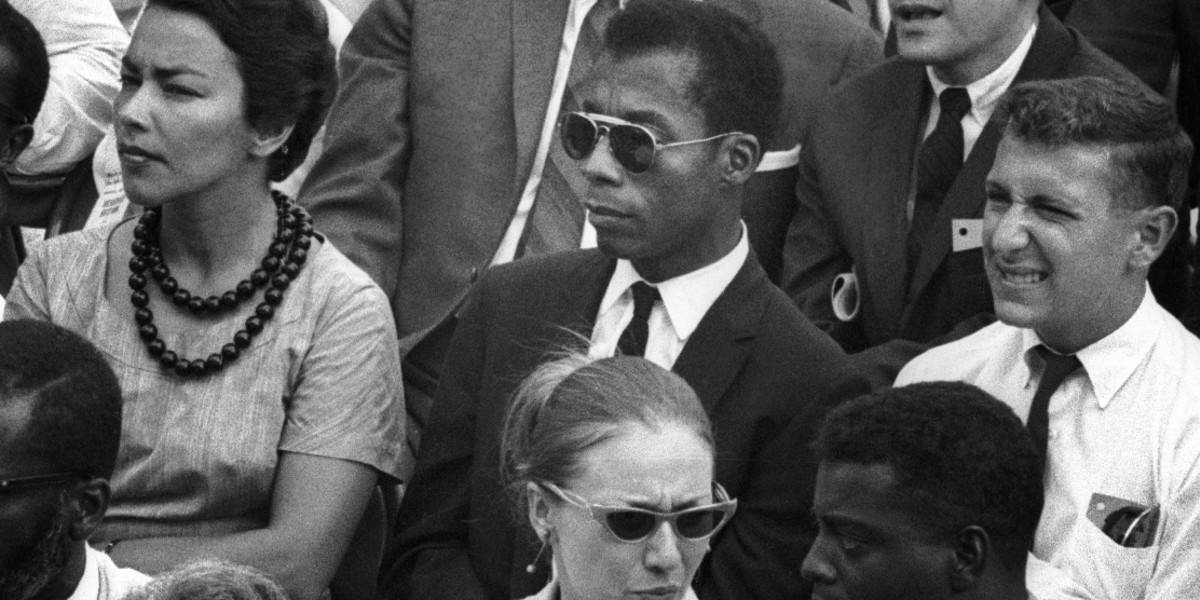 I have always known what it means to be Black, but being Black in America was something I had to discover. As a middle-class Black girl born and raised on the South Side of Chicago to parents who deeply valued education, I lived in a bubble of sorts. All types of literature and films about Black history and pride were available to me, and the spaces where I spent my childhood, my elementary and high schools, summer programs and my neighborhood were full of all types of Black people. My mother had subscriptions to Ebony, Essence, and Jet, and my father on a night out, would dress regally in Nigerian lace; gold glittering both himself and my mother. I’d learned of Civil Rights and had even experienced racism myself; though discussed briefly and forgotten quickly, when I stepped over the threshold of my house. This world that my parents had so diligently forged for their eldest dark-skinned daughter was promptly shattered when I arrived in New York City for undergrad. It was there that I truly discovered what it means to be Black in America.
I have always known what it means to be Black, but being Black in America was something I had to discover. As a middle-class Black girl born and raised on the South Side of Chicago to parents who deeply valued education, I lived in a bubble of sorts. All types of literature and films about Black history and pride were available to me, and the spaces where I spent my childhood, my elementary and high schools, summer programs and my neighborhood were full of all types of Black people. My mother had subscriptions to Ebony, Essence, and Jet, and my father on a night out, would dress regally in Nigerian lace; gold glittering both himself and my mother. I’d learned of Civil Rights and had even experienced racism myself; though discussed briefly and forgotten quickly, when I stepped over the threshold of my house. This world that my parents had so diligently forged for their eldest dark-skinned daughter was promptly shattered when I arrived in New York City for undergrad. It was there that I truly discovered what it means to be Black in America.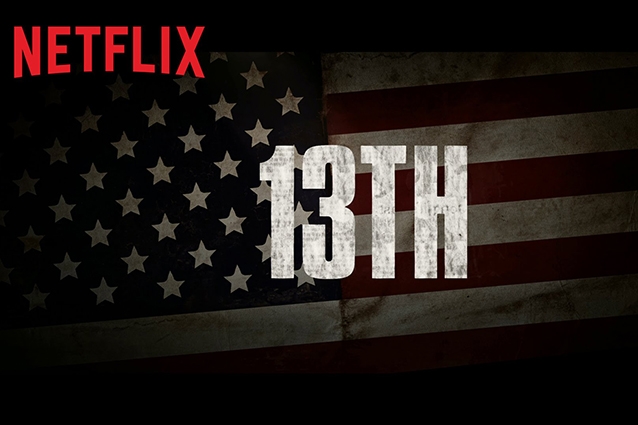 Growing up, prison seemed like an abstract concept to me, one reserved for “Law & Order” episodes and select family members who would be absent every other Christmas or Thanksgiving holiday. It wasn’t until I arrived in college in a class on Black Urban Studies, that I was educated about the mass incarceration that occurs in this country. I watched the 1998 documentary “The Farm: Angola, USA,” and read Michelle Alexander’s “The New Jim Crow: Mass Incarceration in the Age of Colorblindness.” It was through these two mediums that the system of dehumanization and oppression was revealed to me. I distinctly remember feeling horrified that the prisoners of Angola were required to pick cotton as a part of their daily tasks. Slavery was, after all, long ago abolished. However, I soon learned and continued to learn that nothing ever really goes away; it’s merely reinvented into a more easily digestible package ripe for public consumption.
Growing up, prison seemed like an abstract concept to me, one reserved for “Law & Order” episodes and select family members who would be absent every other Christmas or Thanksgiving holiday. It wasn’t until I arrived in college in a class on Black Urban Studies, that I was educated about the mass incarceration that occurs in this country. I watched the 1998 documentary “The Farm: Angola, USA,” and read Michelle Alexander’s “The New Jim Crow: Mass Incarceration in the Age of Colorblindness.” It was through these two mediums that the system of dehumanization and oppression was revealed to me. I distinctly remember feeling horrified that the prisoners of Angola were required to pick cotton as a part of their daily tasks. Slavery was, after all, long ago abolished. However, I soon learned and continued to learn that nothing ever really goes away; it’s merely reinvented into a more easily digestible package ripe for public consumption.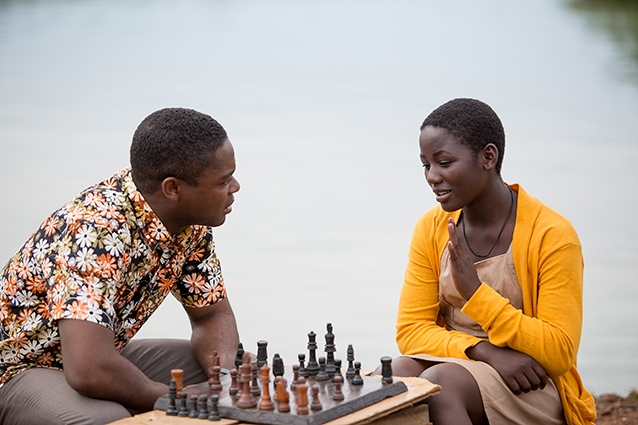 Some of the most ignored stories in the film industry are those of women and girls of the African Diaspora. Though we go through cycles where Hollywood pushes out a plethora of stories about people of color for a set amount of time, films like “Eve’s Bayou”, “Pariah”, and “Beasts of the Southern Wild” are far and few in between. This year, Disney has sought to go against the grain to bring to us the story of 20-year-old Ugandan master chess player, Phiona Mutesi, in Mira Nair’s “Queen of Katwe”. A rarity for a mainstream Hollywood film, “Queen of Katwe” has an all-Black cast and (most importantly) not a white savior in sight.
Some of the most ignored stories in the film industry are those of women and girls of the African Diaspora. Though we go through cycles where Hollywood pushes out a plethora of stories about people of color for a set amount of time, films like “Eve’s Bayou”, “Pariah”, and “Beasts of the Southern Wild” are far and few in between. This year, Disney has sought to go against the grain to bring to us the story of 20-year-old Ugandan master chess player, Phiona Mutesi, in Mira Nair’s “Queen of Katwe”. A rarity for a mainstream Hollywood film, “Queen of Katwe” has an all-Black cast and (most importantly) not a white savior in sight.


